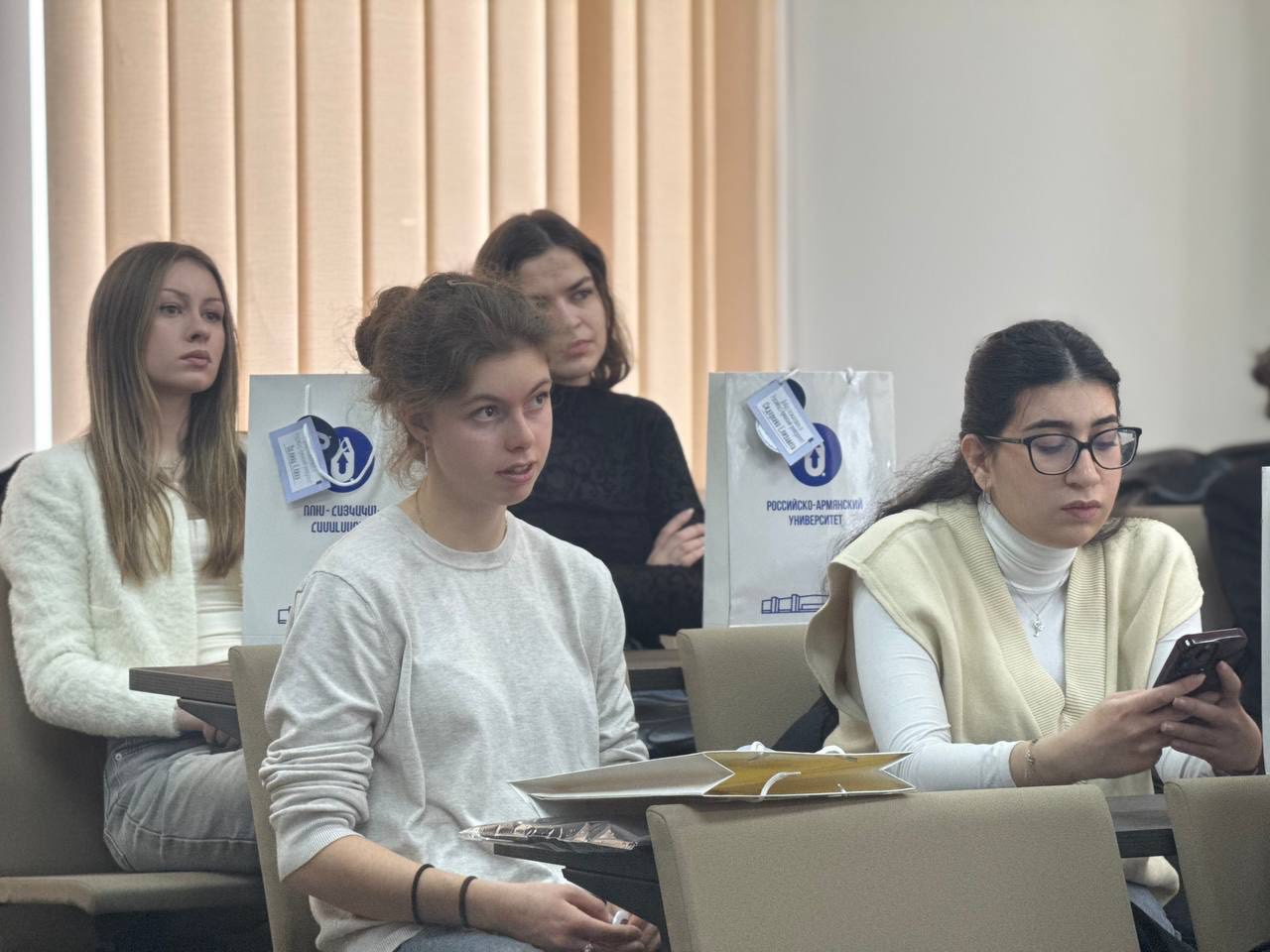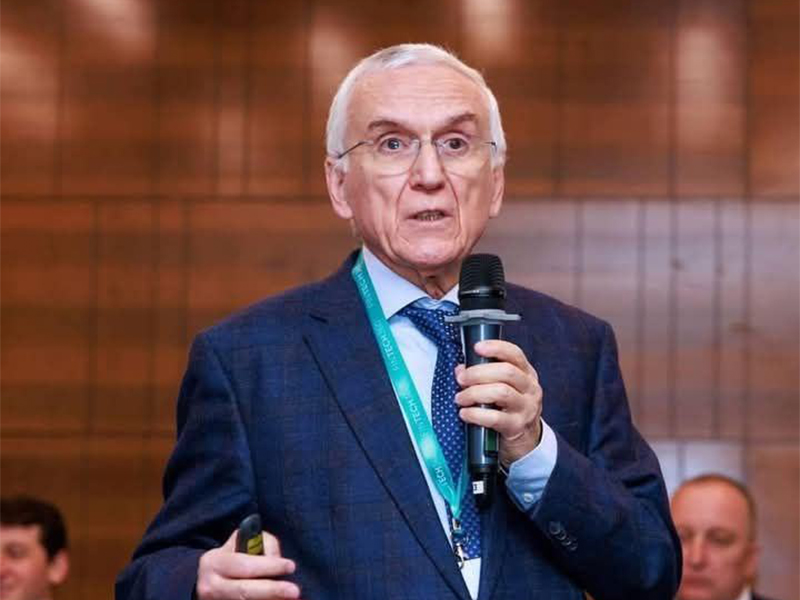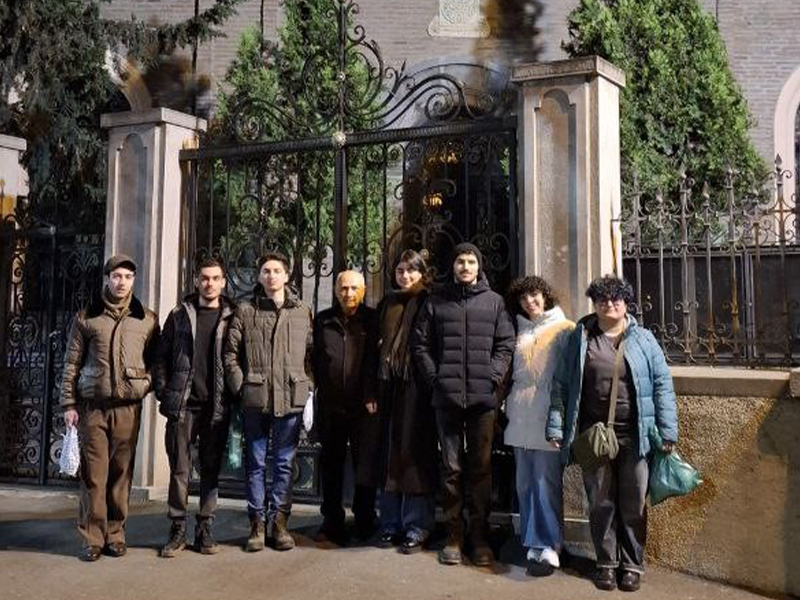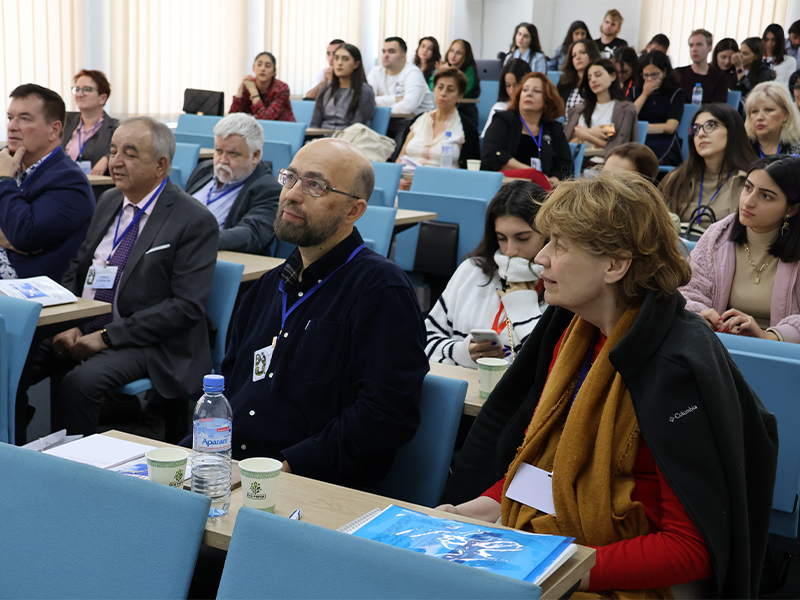
- 17 Oct
- 2023
International conference “Russian Language at the Crossroads of Eras: Traditions and Innovations in Russian Studies” brings together experts from 13 countries at RAU
Speakers from Armenia, Belarus, Germany, India, Kazakhstan, China, Moldova, Poland, Russia, Uzbekistan, Finland, Czech Republic, and Switzerland delivered reports at the conference.
VI International scientific and practical conference “Russian Language at the Crossroads of Eras: Traditions and Innovations in Russian Studies” was held at the Russian-Armenian university on October 12-14. The conference was conducted within the framework of the activities of RAU Russian Studies Centre and was organized by the Department of Russian Language and Professional Communication, as usual.
Once again the conference brought together Russian philologists, Slavicists, linguists-typologists, translators, and other specialists of humanities within the walls of RAU with the aim to exchange the latest scientific and methodological ideas in Russian studies, discuss the achievements in the area of research of current processes in the modern Russian language, as well as the Russian language in light of cognitive science and linguoculturology, traditional and innovative methods of teaching the Russian language, comparative and typological research, and theory and practice of translation.
This year the conference gathered 121 participants from 13 countries and 64 higher education institutions. The format was mixed, allowing some of the participants to speak on-site, others remotely, and yet others in-absentia. Reports were made by participants from Armenia, Belarus, Germany, India, Kazakhstan, China, Moldova, Poland, Russia, Uzbekistan, Finland, Czech Republic, and Switzerland in plenary and breakout sessions.
On September 12, at the plenary session leading Russian language specialists, linguists from Russia, Germany, and Armenia delivered speeches, among them PhD, Prof., Academician of RAS Vladimir Plungian (on-site), PhD, Prof. Ekaterina Rakhilina (on-site), PhD, Prof. Maxim Krongauz (on-site), PhD, Prof. Vladimir Karasik (on-site) (Moscow, Russia); PhD, Prof. Mikhail Dymarsky (on-site) (St. Petersburg, Russia); PhD, Prof. Dr. habil. Peter Costa (on-site) (Potsdam, Germany); PhD in Philology Associate Professor Karen Hakobyan (on-site) (Yerevan, Armenia), PhD, Prof. Suren Zolyan (remotely) (Kaliningrad, Russia – Yerevan, Armenia).
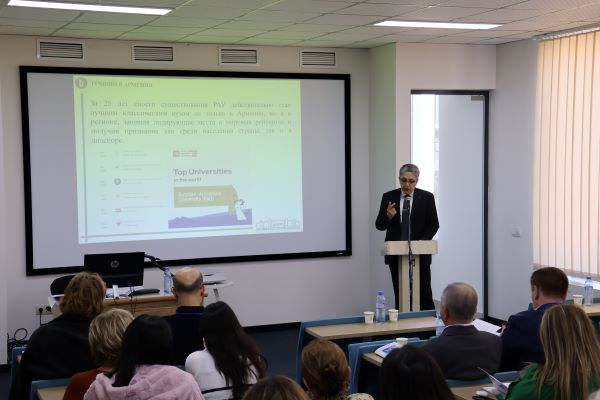 “It a great honor for us to welcome such outstanding scientists; to be not only a venue for holding of an extremely significant for Armenian Russian Studies scientific event, but a place of scientific and educational dialogue, as well as a bridge which connects various scientific and educational systems, concepts, and cultures, in full correspondence with the mission of our university”, - noted the organizer of the conference, Head of Department of Russian Language and Professional Communication Karen Hakobyan.
“It a great honor for us to welcome such outstanding scientists; to be not only a venue for holding of an extremely significant for Armenian Russian Studies scientific event, but a place of scientific and educational dialogue, as well as a bridge which connects various scientific and educational systems, concepts, and cultures, in full correspondence with the mission of our university”, - noted the organizer of the conference, Head of Department of Russian Language and Professional Communication Karen Hakobyan.
On September 12 and 13, the work of the conference continued in breakout sessions, where reports were given on the following topics: theory and history of the Russian language and current issues of Russian studies, the Russian language in light of cognitive science and linguoculturology, traditional and innovative methods of teaching the Russian language, modern information technologies in methods of teaching the Russian language, formation of linguistic, socio- and intercultural competences in professional field, comparative research and problems of the translation theory and practice.
A cultural program including trips to the Etchmiadzin Cathedral and Zvartnots Temple was organized for the guests of the conference.
International scientific and practical conference “Russian Language at the Crossroads of Eras: Traditions and Innovations in Russian Studies” has long become a large-scale scientific event, significant for the community of Russian language specialists of Armenia and the entire region not only and not so much in terms of the number of participants from different countries, but rather the level of scientific thought, spirit, energy, and consolidation of ideas; it is an event, which has long been promoting the transformation of the Russian language into the language of science, progress, success, cognition and discovery of the world.
International scientific and practical conference “Russian Language at the Crossroads of Eras: Traditions and Innovations in Russian Studies” has long become a large-scale scientific event, significant for the community of Russian language specialists of Armenia and the entire region not only and not so much in terms of the number of participants from different countries, but rather the level of scientific thought, spirit, energy, and consolidation of ideas; it is an event, which has long been promoting the transformation of the Russian language into the language of science, progress, success, cognition and discovery of the world.
Translated by Aykanush Karabekyan,
I year Master’s Student in Translation & Interpretation, RAU
I year Master’s Student in Translation & Interpretation, RAU






